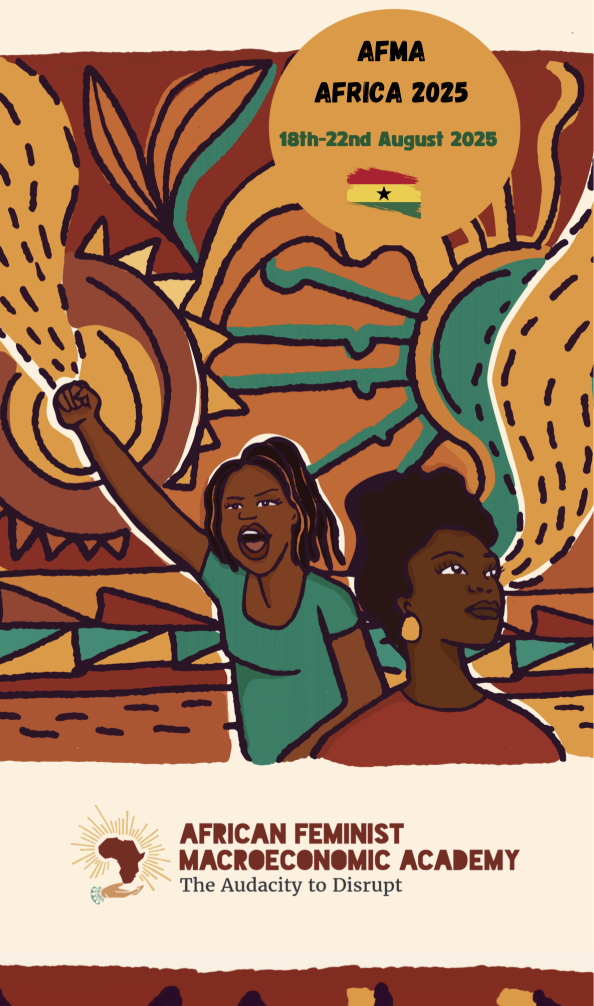The 2025 Africa Feminist Macroeconomic Academy (AFMA), convened by the African Women’s Development and Communication Network (FEMNET) in partnership with the Tax Justice Network Africa (TJNA), NAWI Collective and the Global Alliance for Tax Justice (GATJ), takes place at a critical moment for Africa and the world.
Across the globe, governments continue to recognise gender equality as essential to the achievement of sustainable development. To support this goal, many have committed to a range of international and regional human rights instruments aimed at both advancing the rights of women in all their diversities and eliminating discrimination and bias that hinder progress toward gender equality. However, the achievement of these commitments has, to an extent, been limited by the existing economic policies. Depending on their design and implementation, economic policies can either catalyze gender equality or further entrench existing inequalities and biases.
With recent global financing shifts—including reductions in official development assistance (ODA) to countries in the Global South and an increasing debt crisis—there is growing urgency for states to strengthen domestic tax systems. This shift reflects the broader recognition that taxation is a critical source of sustainable financing. As a result, there have been efforts by actors at the national, regional, and global levels.
Globally, in 2024, UN Member States overwhelmingly approved the Terms of Reference, the mandate, for a UN Framework Convention on International Tax Cooperation. The main objectives is to develop an inclusive, fair, transparent, efficient, equitable, and effective international tax system for sustainable development. It is notable that the framework convention will address issues such as fair allocation of taxing rights, tax-related illicit financial flows, and enhanced mutual administrative assistance in tax matters. The Africa Group has been a leader in this process, having initially tabled the resolution.
At the regional level, the African Union and the African Tax Administration Forum (ATAF) have played a significant role in mobilising revenue authorities and Ministries of Finance to strengthen tax systems. This has been achieved through capacity building for tax officials, the digitalisation of tax systems to keep pace with rapidly changing economic contexts, and advocacy for key agendas such as tax harmonisation, taxation of the digital economy, and the development of the ATAF Model Tax Treaty. The AU and ATAF have also been instrumental in coordinating joint African positions to influence major international tax processes.
Due to loopholes within the tax laws that are often exploited by multinational corporations and wealthy individuals to avoid payment of their share tax, harmful tax incentives and exemptions that are often awarded under the guise to attract Foreign direct investment, as well as contentious tax agreements that deny African countries taxing rights, tax systems have significant leakages. In 2020, illicit financial flows were reported to amount to over $89 billion annually from Africa. As a result of these challenges, countries have gone through vicious cycles where they register low tax collections, impose regressive tax which disproportionately affects women, and have increased reliance on debt to finance their development.
While these challenges have continued to exist and spur debate among various tax actors, one issue that has quickly cropped up on the agenda is that of gender and tax. It is widely agreed that tax systems have remained largely gender-blind, which risks undermining progress the efforts that have been made towards the achievement of gender equality.
In this regard, tax systems continue to reflect biases that disproportionately affect women. Implicit biases are evident in consumption taxes such as Value Added Tax (VAT), which are levied on basic goods and services. Since women typically allocate a larger share of their income to household necessities—like food, healthcare, and education—they end up bearing a greater tax burden than men. Additionally, gender biases appear when tax codes prioritise low corporate tax rates over equitable redistribution. Such approaches disadvantage women, who are more likely to earn lower incomes or work in informal and unpaid sectors. Moreover, when governments fail to generate sufficient domestic revenue—often due to excessive tax incentives for corporations, weak enforcement against illicit financial flows, or the persistence of tax avoidance and evasion—the result is a shrinking public budget. This leads to cuts in essential public services such as education, healthcare, and childcare, which women rely on more heavily due to disproportionately holding caregiving roles and lower average incomes.
In essence, without a gender-transformative approach to taxation, even well-intentioned fiscal policies risk reinforcing systemic gender inequalities. While there is growing recognition of the need for a feminist approach to taxation as a strategy to reform failing tax systems, efforts to consistently engage feminist actors in this space have been limited. This is partly due to the slow growth of the feminist economics movement and the fact that many feminist economists have not been meaningfully included in key tax justice spaces. As a result, current gender-blind tax policies remain rooted in long-standing systems of women’s economic marginalisation and the persistence of patriarchal social norms and structures.
It is upon this background that FEMNET, in partnership with Tax Justice Network Africa (TJNA) and the Global Alliance for Tax Justice (GATJ), is convening the 2025 Africa Feminist Macroeconomic Academy from August 18th to 22nd under the theme: “A Feminist Approach to Tax Justice: Reclaiming Public Resources for Gender and Economic Justice.”
Read the full concept note here:
